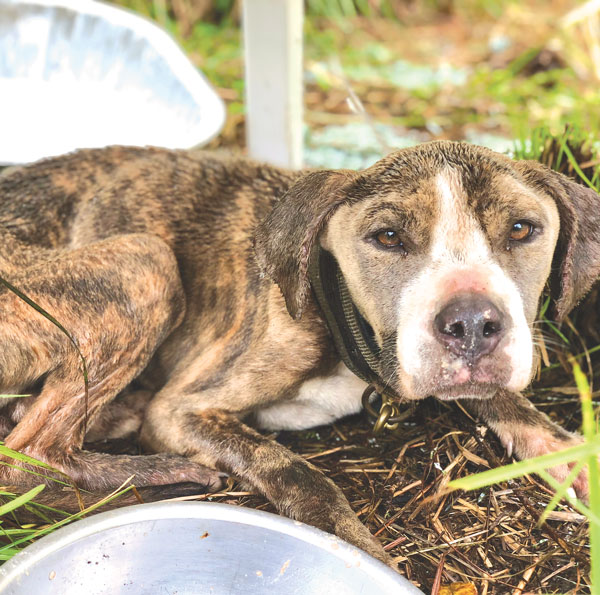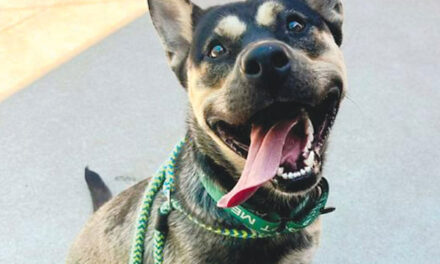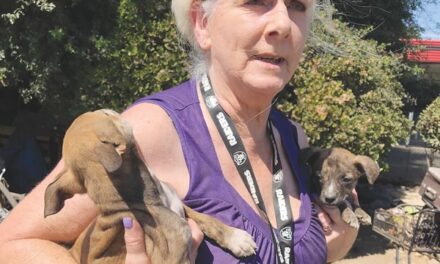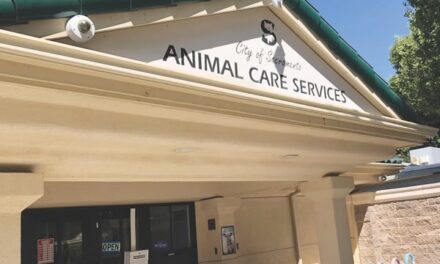Current law makes it a crime for people to deprive their companion animals of “necessary sustenance, drink or shelter.” But the statute falls short of what that means.
Necessary sustenance could be a loaf of bread or a candy bar—anything to keep the pet alive. Drink could be a can of Coke. A metal cage, just large enough for the animal to stand up and turn around, is considered shelter.
Last October, I wrote about a pit bull in the backyard of a Sacramento home. She lived 24/7 in a 4-foot by 6-foot chain-link kennel on hardpan dirt with a filthy water bowl and feces scattered about.

A Sacramento County animal control officer told me there was little, if anything, he could do. There were “no violations of law,” he said. “The kennel is more than adequate for the size of the dog. The water is definitely potable.”
He went on to tell me about an “improper care violation” where the water for four dogs was a kiddie pool with “a thick layer of algae on the top that you could practically walk on.” Because water was available, the judge threw out the case.
After my story ran, the chief of staff for a state senator contacted me. He was interested in ideas on how to fix the problems highlighted in the article. Was it just a matter of adding more detailed definitions to the animal cruelty laws?
I reached out to the heads of two local animal shelters. My suggestions were basic. Let’s define food, water and exercise. Give law enforcement more power to act on behalf of animals. Their responses ranged from disinterest to noncommitment. One thought changing the law might make it harder for animal control officers to do their jobs.
My next step was to draft language myself to amend current law.
Define “necessary sustenance” and “proper food” as adequate nutrition, free from mold, mildew and non-edible debris, in the amount appropriate for the size, breed and weight of the animal.
“Drink” would be defined as fresh, clean water, free from algae, other plant material and debris.
“Shelter” should be overhead cover that protects the pet from heat, cold, rain and other inclement circumstances. It should be a size and structure that allows the animal to move around unencumbered.
While the senator decided not to carry the bill this year, another lawmaker introduced the Dog and Cat Bill of Rights in February. AB 1881 by Assemblymember Miguel Santiago (D-Los Angeles) would declare dogs and cats as “sentient beings that experience complex feelings.”
But it seems breeders don’t want companion animals to have “rights.” To address concerns from the American Kennel Club, a registry for purebred dogs, the bill was amended to change “Dogs and cats have the right” to “Dogs and cats deserve.”
The bill would affirm that dogs and cats deserve to be free from exploitation, cruelty, neglect and abuse, and to a life of comfort, without fear and anxiety. They should be provided daily mental stimulation and appropriate exercise, nutritious food, sanitary water and safe shelter.
The bill calls for regular veterinary care, identification tags and microchips, and to be spayed and neutered to prevent unwanted litters.
AB 1881 would require animal shelters and rescue groups to post a notice (not a Bill of Rights) in public areas. The first failure would result in a warning, with a $250 penalty for each subsequent violation.
“Our dogs and cats deserve to be loved, and cared for,” Santiago says. “The Dog and Cat Bill of Rights will help inform potential adopters of the care needed to create a healthy environment for their adopted pets.”
A right to appropriate exercise, nutritious food, sanitary water and safe shelter—is that too much to ask?
Cathryn Rakich can be reached at crakich@surewest.net. Follow us on Facebook, Twitter and Instagram: @insidesacramento.
















